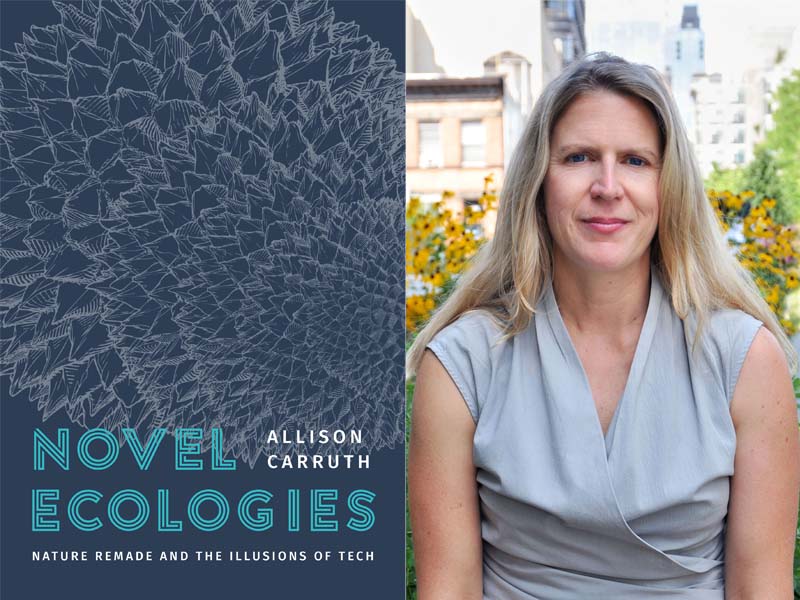Allison Carruth is a professor in the Effron Center for the Study of America and the High Meadows Environmental Institute. Her latest book “Novel Ecologies: Nature Remade and the Illusions of Tech” was published in March 2025 by University of Chicago Press.
How did you get the idea for this project?
The seeds for Novel Ecologies took root over the decade that I lived in San Francisco, from the first dot-com boom through 2011, when I relocated to Los Angeles to join the faculty at UCLA. In that period, my research and writing focused on the question of how writers have variously imagined and illuminated the role of food and agriculture in the rise of the United States as a global power. That work led me to explore the particular influence of biotech in that history—which, combined with the firsthand experience of living in California for over twenty years, provided the seeds for a new interest in the stories tech companies and tech leaders have told about innovation, engineering and the natural world.
How did the project develop or change throughout the research and writing process?
In 2017, I began researching visions of the future that addressed the biggest environmental challenges of the twenty-first century while resisting dystopian and apocalyptic scenarios. The initial project compared the work of writers, artists, scientists, and engineers. My original title was “Wily Ecologies.” In its original formulation, however, the project proved too amenable to the rhetoric and power of Silicon Valley—too ready-made for what I define in Novel Ecologies— as Nature Remade, the fantasy that planetary crises can be ameliorated with higher tech, cleaner capitalism, and greener frontiers. Endeavors to realize this fantasy always point to the future. But they run on the tracks of empire: undersea cables that undergird the cloud, mines that power electric cars, venture capital–backed labs that hope to revive lost species and cool the planet, private space programs that may one day ferry some people to Mars and beyond. As I researched these and other such endeavors, I found myself turning to the countervailing visions of writers, artists, and scientists that refuse the amnesia of techno-utopianism by envisioning futures made by the slow and collective work of repair.
Why should people read this book?
Novel Ecologies investigates a distinctly California paradigm shaped by the tech industry that I term Nature Remade. Through three case studies—synthetic wildlife, the digital cloud and space colonization—the book challenges the conviction that climate change and other environmental crises must be met with planetary-scale technological intervention. Against the world-building gambits of Google, Open AI, SpaceX and a host of start-ups, I marshal the work of writers and artists who imagine provisionally hopeful futures while refusing to forget histories of power and exploitation that have made the world what it is.
Learn more about other publications by Princeton University faculty in the humanities by exploring our Faculty Bookshelf.
















